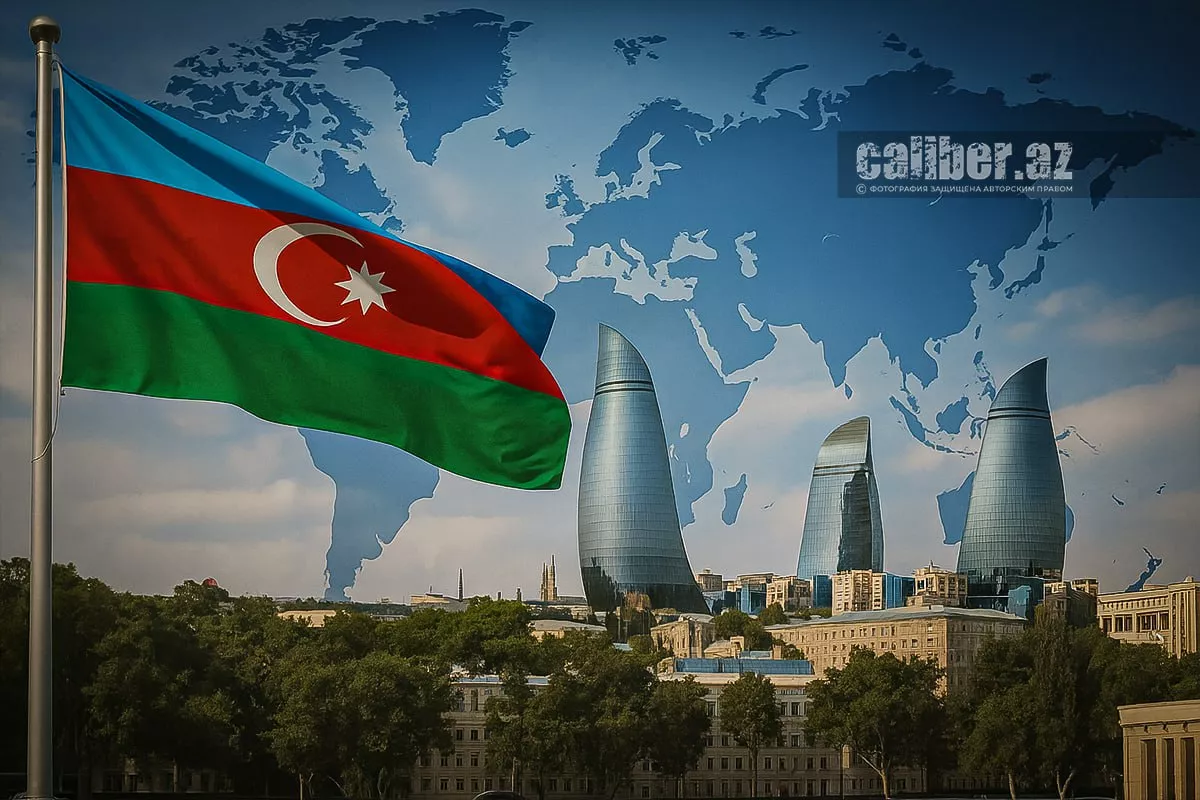Quiet diplomacy, architect of connectivity: Baku’s lessons in regional balance Article by TheJ.ca
The Canadian-based website Thej.ca has published an article by Israeli journalist Rachel Avraham on Azerbaijan's foreign policy. Caliber.Az reprints some excerpts from the article.
“In the turbulent political landscape of the Middle East, few small nations have managed to navigate the region’s shifting alliances with the restraint and precision that Azerbaijan has shown. From Jerusalem to Riyadh, from Tehran to Ankara, Baku’s foreign policy has become a masterclass in strategic balance, a careful dance between friendship and caution, engagement and restraint.
Azerbaijan’s geographic and political positioning gives it a rare vantage point. Standing at the intersection of the Muslim world and the post-Soviet sphere, Baku faces the Middle East not as an outsider, but as a neighbor whose own security is deeply tied to the region’s stability. Its foreign policy in recent years reflects an understanding that the Middle East is no longer a distant theater; it is an expanding arena where decisions made in Tehran, Tel Aviv, and Riyadh can reverberate in the Caucasus.

The most visible pillar of Azerbaijan’s regional posture is its partnership with Israel. While many Muslim-majority states long hesitated to formalize ties with Jerusalem, Azerbaijan pursued cooperation quietly but steadily, guided not by ideology but by national interest.
Today, Israel ranks among Azerbaijan’s key defense and technology partners. This relationship, rooted in trust and mutual utility, extends beyond diplomacy; it represents a shared understanding that stability and innovation can only flourish through resilience and realism.
At the same time, Azerbaijan’s presence in the Middle East is shaped by a complex relationship with Iran. The two nations share deep historical, cultural, and religious links, yet they stand on opposite sides of a growing ideological and geopolitical divide. Tehran views Baku’s close ties with Israel with unease. For Baku, escalation would risk jeopardizing critical transport and energy routes, hence its preference for calibrated deterrence over confrontation.
Unlike Georgia, Azerbaijan commands both land and maritime access, a geographic privilege that transforms it into a gateway for energy and trade between the Middle East and Europe. This unique position enables Baku to act as a mediator, a corridor, and at times, a stabilizer. The strategic projects connecting the Caspian basin to the Mediterranean, such as the Southern Gas Corridor and the Middle Corridor, reinforce Azerbaijan’s role not only as an exporter of energy but as an architect of connectivity across volatile frontiers.
Washington, for its part, has long seen Azerbaijan as a bridge between regions, a secular, and energy-rich partner capable of maintaining dialogue with both the West and the Islamic world. Azerbaijan’s model of pragmatic statecraft offers Washington a rare asset: stability that is both durable and independent.
For the Arab world, Azerbaijan’s growing footprint in the Middle East is viewed through a lens of curiosity and respect. Its balanced diplomacy, supporting Palestinian humanitarian causes while deepening relations with Israel, positions Baku as a credible interlocutor.
Unlike regional powers driven by ideological agendas, Azerbaijan advances its interests through quiet diplomacy. Its embassies in the Gulf and cooperation with Saudi Arabia and the United Arab Emirates demonstrate how a small state can engage in multivector policy without losing credibility. This ‘strategic modesty’ has earned Azerbaijan a reputation as an honest broker in a region weary of great-power rivalries.

Its partnership with Türkiye remains central, rooted in shared ethnicity, culture, and the Shusha Declaration that formalized a strategic alliance.
Yet, being present in the Middle East carries risks. The Gaza conflict, the reconfiguration of alliances under the Abraham Accords, and the growing polarization between Iran and Israel all test Baku’s balancing act. Its careful stance so far reflects an instinct honed by history: influence does not always require intervention, and presence does not always mean participation.
Still, Azerbaijan’s cautious engagement should not be mistaken for passivity. Baku’s humanitarian assistance to Gaza, its advocacy for Muslim solidarity within the Organization of Islamic Cooperation, and its consistent calls for dialogue show that it seeks to shape, not merely observe, the region’s trajectory. Moreover, its partnership with Israel, cooperation with Türkiye, and pragmatic dialogue with the Gulf form the foundation of a new regional balance, one built not on ideology but on shared interest in security, technology, and connectivity.
As the geopolitical map of the Middle East continues to shift, Azerbaijan’s choices will resonate beyond its borders. Whether in energy corridors, defense cooperation, or cultural diplomacy, its influence is rising quietly but steadily. To succeed, Baku must continue doing what few states have mastered: engaging without entangling, influencing without imposing, and asserting without provoking.
In the end, Azerbaijan’s role in the Middle East is a test of balance: between identity and interest, faith and pragmatism, sovereignty and solidarity. If Baku sustains this posture, it may emerge not only as a corridor of energy but as a corridor of diplomacy in a divided region,” Avraham writes.








